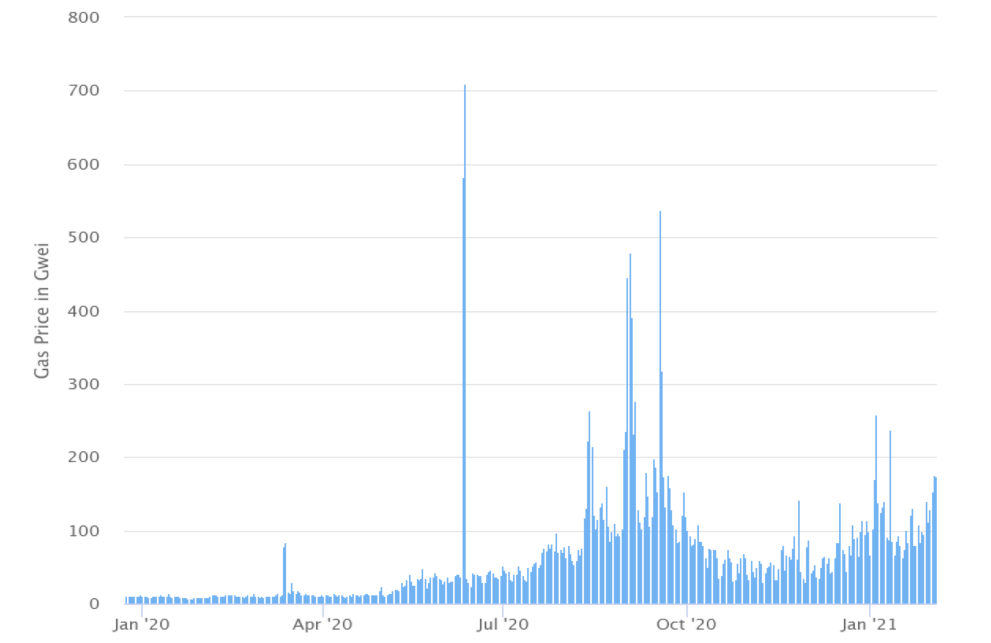Since early 2020 the decentralized finance sector has been recieved a lot of attention due to its cutting-edge innovation and the lucrative high yield opportunities offered to cryptocurrency holders.
Despite these features, this week’s record-high gas fees show that the sector is still having growing pains and the absence of a suitable layer 2 solution could be pushing smaller investors away from DeFi.
Investors attempting to place a trade on Uniswap or simply approve a new token on their favorite DeFi platform will have noticed the dent these actions have put on their ETH wallet.

Data from Etherscan shows that while gas prices have not reached as high as they were in 2020, they are noticeably higher since December of last year. This rise in gas fees also coincides with the surge in Ether price.
Analysis of different time zones shows that the cost for transactions occurring during the Asian trading session are comparable to those during the U.S. trading session. This shows that the fees are a factor of network usage and highlights the 24-hour nature of the cryptocurrency market.

There is one group, however, that has benefited from the sharp increase in network fees. fees brought on by the rise of DeFi: Whale token holders.
A closer look at wallets that contain at least 20 ETH throughout 2020 shows a higher number of Ethereum transactions than those coming from smaller wallets, which also correlated to an increase in fees.

Since gas fees are not calculated based on the size of the transaction but rather the cost to interact with smart contracts, large wallet holders are more likely to engage with the protocol during higher congestion times as a larger wallet balance is less affected by raising transaction costs.
Hypothetically, a $200 trade and a $20,000 trade on Uniswap could both cost roughly $50 in fees under current conditions, making it less likely that smaller wallets will engage as the cost of the trade is 25% of the total value traded versus 0.25%.
In order for DeFi to continue its explosive growth, the gas issues seen on the Ethereum network problem will need to be addressed before any level of mass adoption can be achieved.

